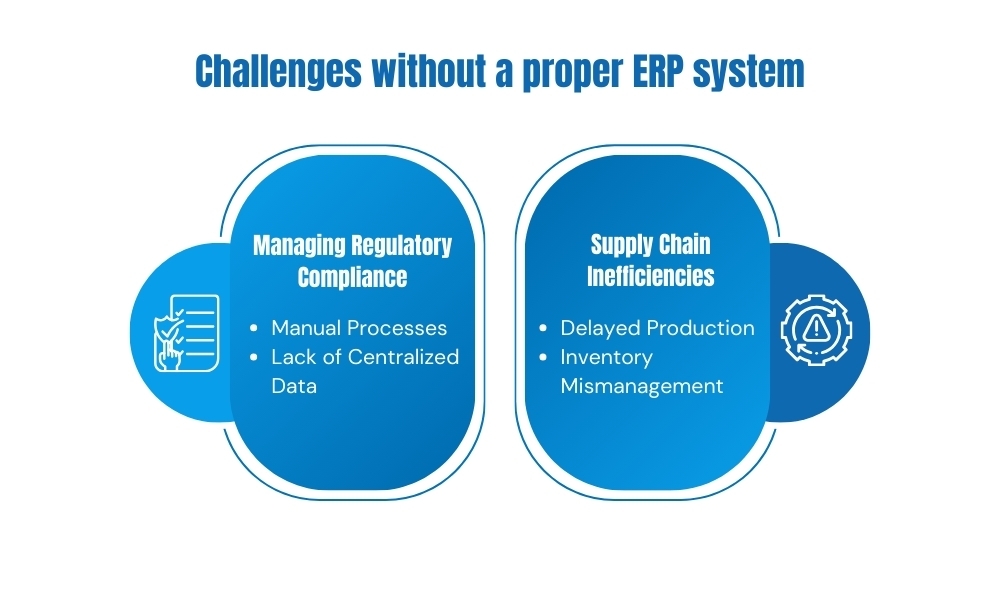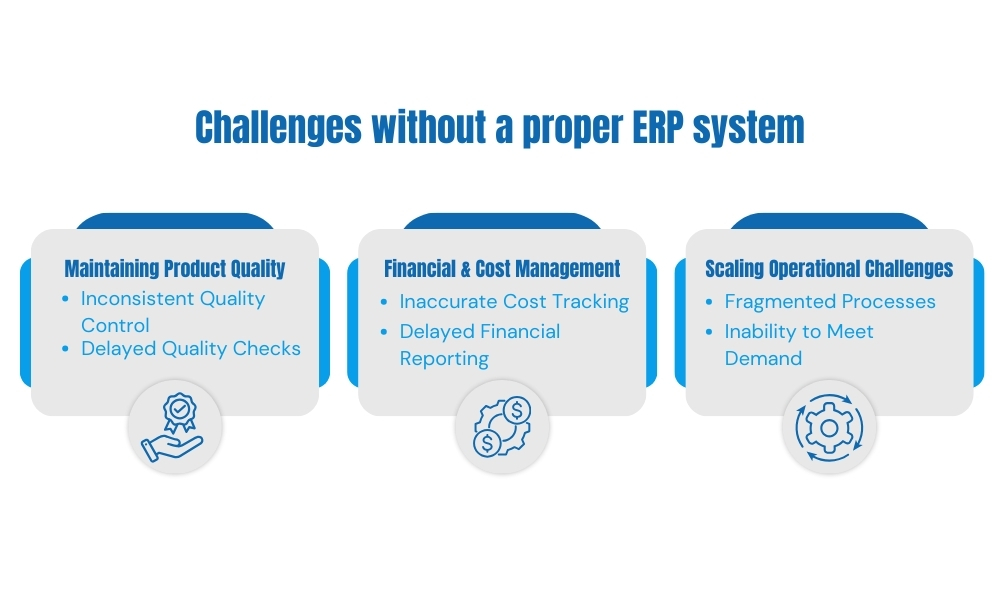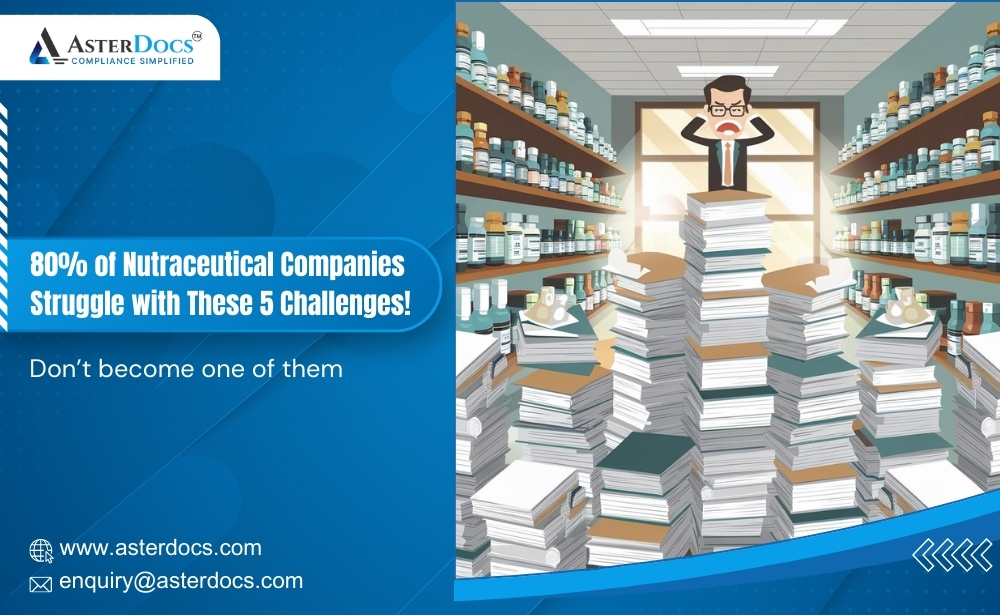Running a nutraceutical company in a competitive environment isn’t easy. Between regulatory compliance, supply chain management, and product quality, there’s a lot to juggle. Without an Enterprise Resource Planning (ERP) system specifically tailored to the needs of nutraceutical companies, these challenges can quickly become overwhelming.
The top 5 critical challenges without an ERP for nutraceutical companies
How addressing these issues can pave the way for smoother operations and sustainable growth.
1. Difficulty in Managing Regulatory Compliance
The nutraceutical industry is highly regulated, with stringent standards for quality, safety, and labeling. Navigating these complex regulations can be challenging, especially as they frequently change. Without an ERP system designed for nutraceutical companies, keeping up with compliance requirements becomes a daunting task.
- Manual Processes: Without ERP, companies often rely on manual processes to track compliance. This increases the risk of errors, missed deadlines, and ultimately, non-compliance penalties.
- Lack of Centralized Data: Without a centralized system, crucial compliance data is often scattered across different departments, making it difficult to access and verify information when needed.
An ERP for nutraceutical companies integrates compliance management into everyday operations, ensuring that all processes, from raw material sourcing to final product distribution, meet regulatory standards.
2. Inefficiencies in Supply Chain Management
Managing the supply chain in the nutraceutical industry involves coordinating multiple suppliers, tracking raw materials, and ensuring the timely delivery of finished products. Without an ERP system, inefficiencies in supply chain management can lead to significant issues:
- Delayed Production: Without real-time tracking and forecasting, raw materials may not arrive on time, causing production delays.
- Inventory Mismanagement: Lack of visibility into inventory levels can result in either overstocking, tying up valuable resources, or stockouts, leading to missed sales opportunities.
ERP systems provide a real-time view of the entire supply chain, enabling nutraceutical companies to optimize inventory management, forecast demand accurately, and ensure timely production.

3. Challenges in Maintaining Product Quality
Quality is paramount in the nutraceutical industry. Customers expect safe and effective products, and any lapse in quality can severely damage a brand’s reputation. However, maintaining consistent quality across all products can be challenging without an ERP system.
- Inconsistent Quality Control: Without automated processes, maintaining consistent quality standards across batches can be difficult.
- Delayed Quality Checks: Manual quality checks can slow down production, leading to delays in getting products to market.
ERP systems streamline quality control processes by automating inspections, ensuring that every product meets the highest standards before it reaches the customer.
4. Difficulty in Managing Financials and Costs
For any business, managing finances is critical. For nutraceutical companies, this includes tracking costs associated with raw materials, production, and distribution. Without an ERP system, managing finances can be a complex and time-consuming process.
- Inaccurate Cost Tracking: Without a unified system, tracking costs accurately across various departments can be difficult, leading to budgeting errors.
- Delayed Financial Reporting: Manual financial reporting can be time-consuming, making it difficult to get an accurate and timely view of the company’s financial health.
ERP systems provide comprehensive financial management tools that integrate with other business processes, offering real-time insights into costs and financial performance.
5. Challenges in Scaling Operations
As nutraceutical companies grow, so do the complexities of managing operations. Without an ERP system, scaling up operations can lead to several challenges:
- Fragmented Processes: With time, managing different aspects of the business (such as production, sales, and customer service) becomes increasingly difficult without a centralized system.
- Inability to Meet Growing Demand: Without the right tools to forecast demand and manage resources, companies may struggle to meet the growing needs of their customers.
ERP systems are designed to grow with your business, providing the scalability needed to manage increased production, sales, and distribution without losing control over quality and efficiency.

Conclusion
Operating without an ERP for nutraceutical companies can lead to significant challenges, from managing compliance and maintaining quality to optimizing the supply chain and scaling operations. These challenges can not only hamper growth but also put the company at risk of non-compliance and financial instability.
Implementing an ERP is not just a solution—it’s a strategic move to ensure long-term success in a highly competitive market. If you’re looking for a way to manage these challenges effectively and streamline your business processes, consider AsterDocs. Our comprehensive document management solutions can help you maintain compliance, improve efficiency, and ensure quality across all aspects of your nutraceutical business. Visit now!













